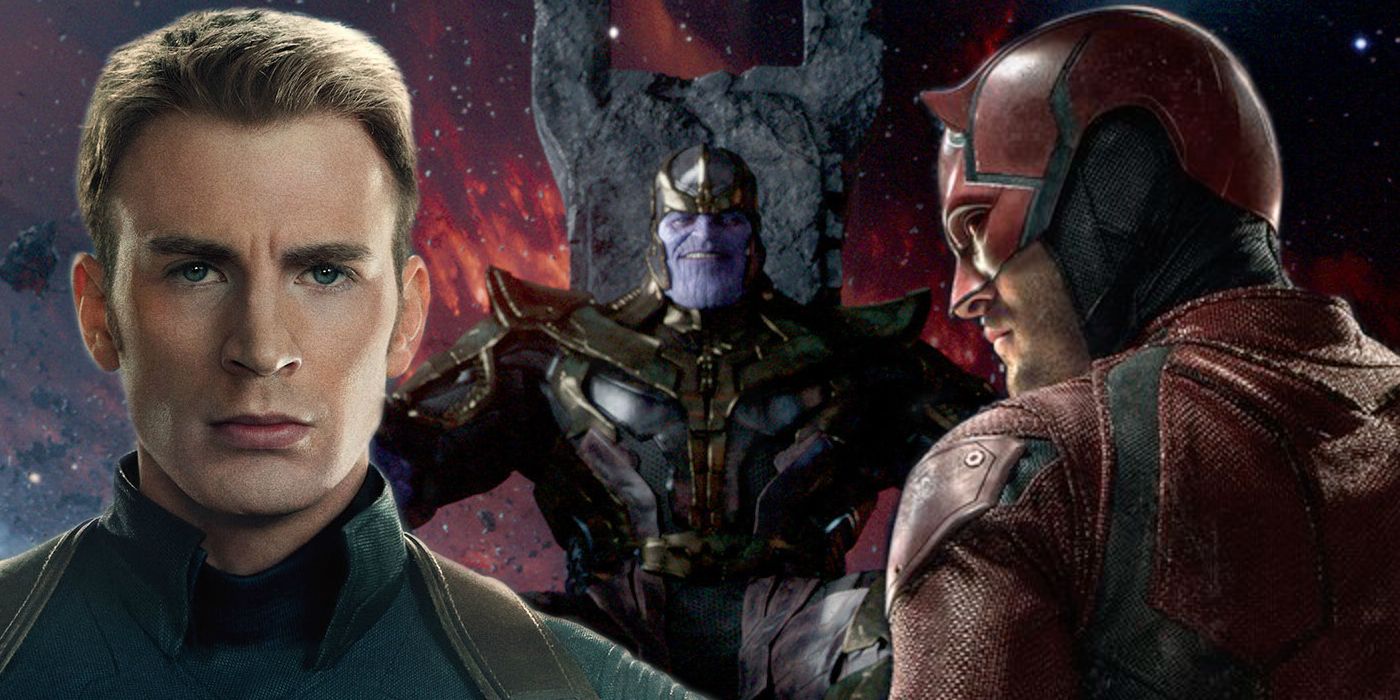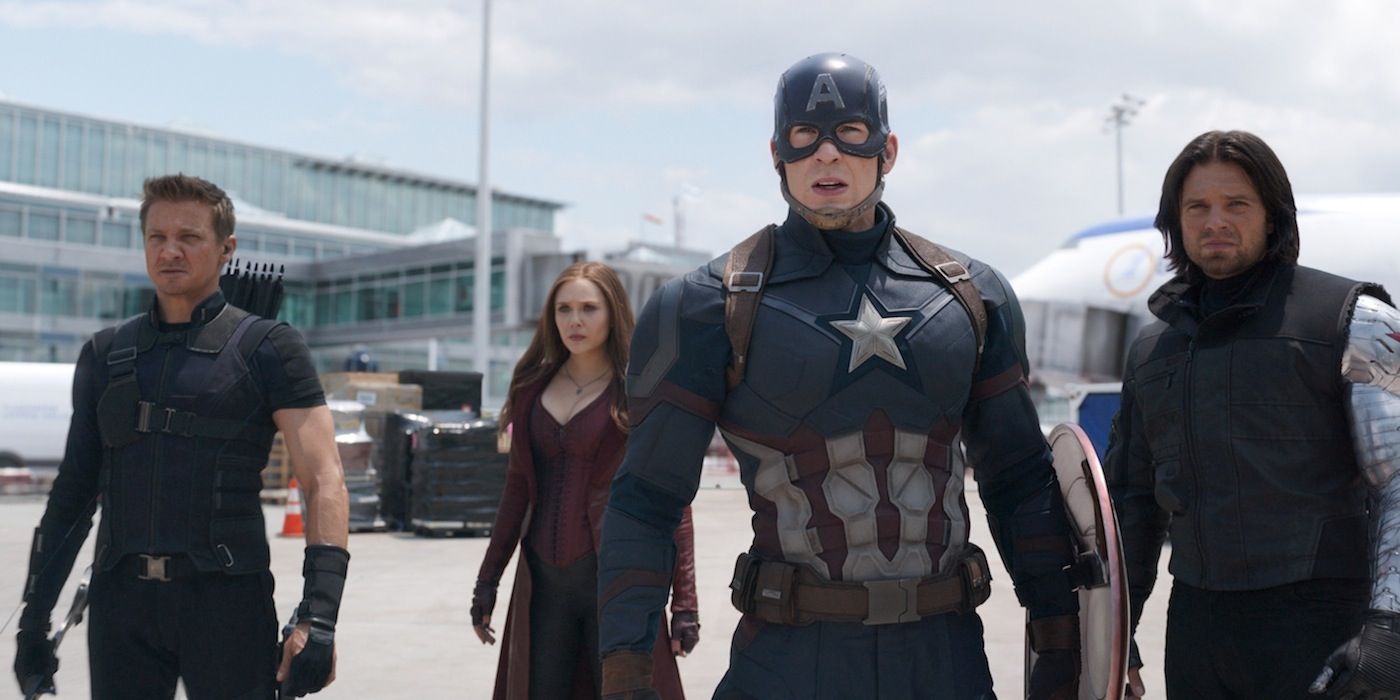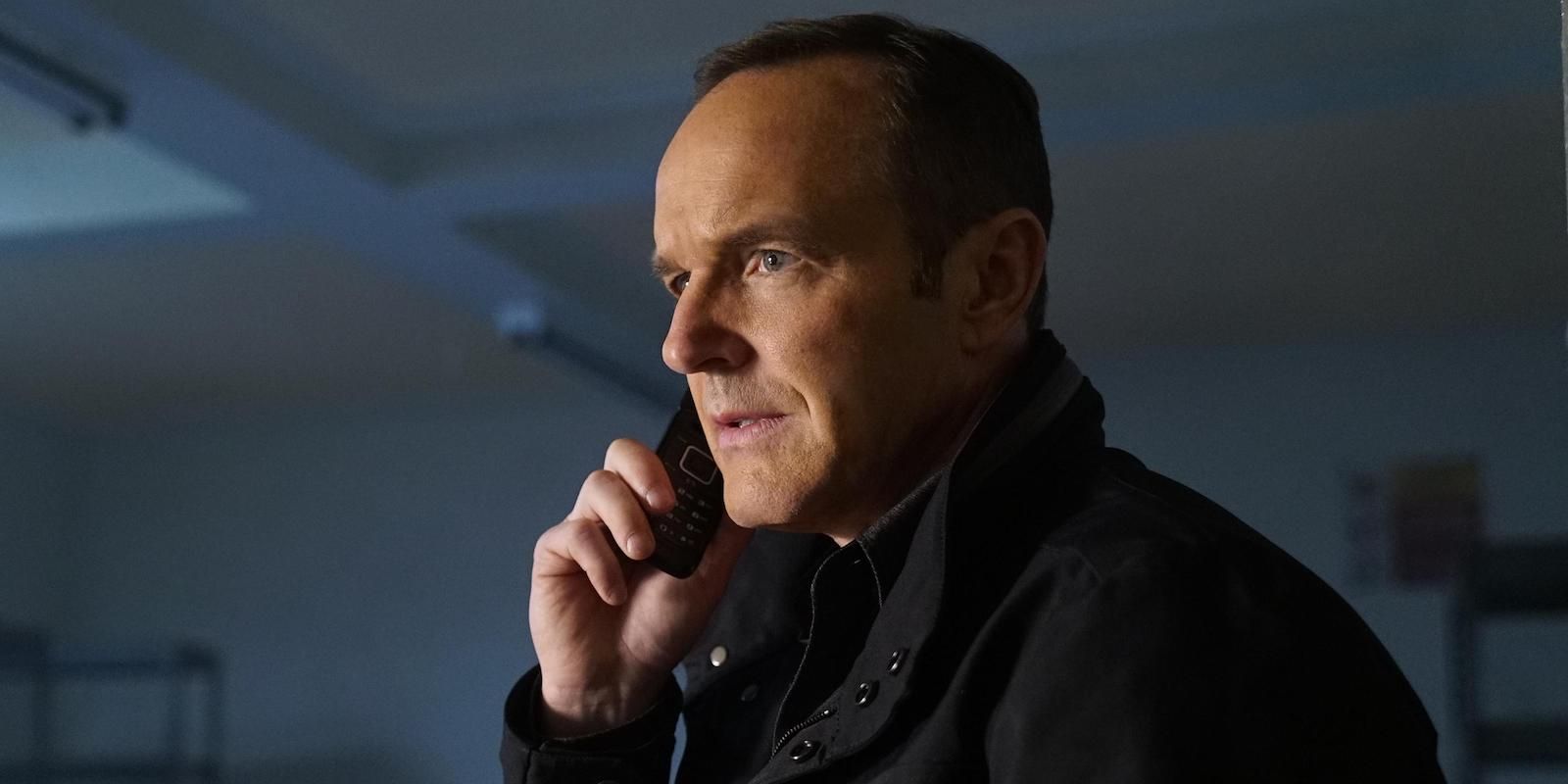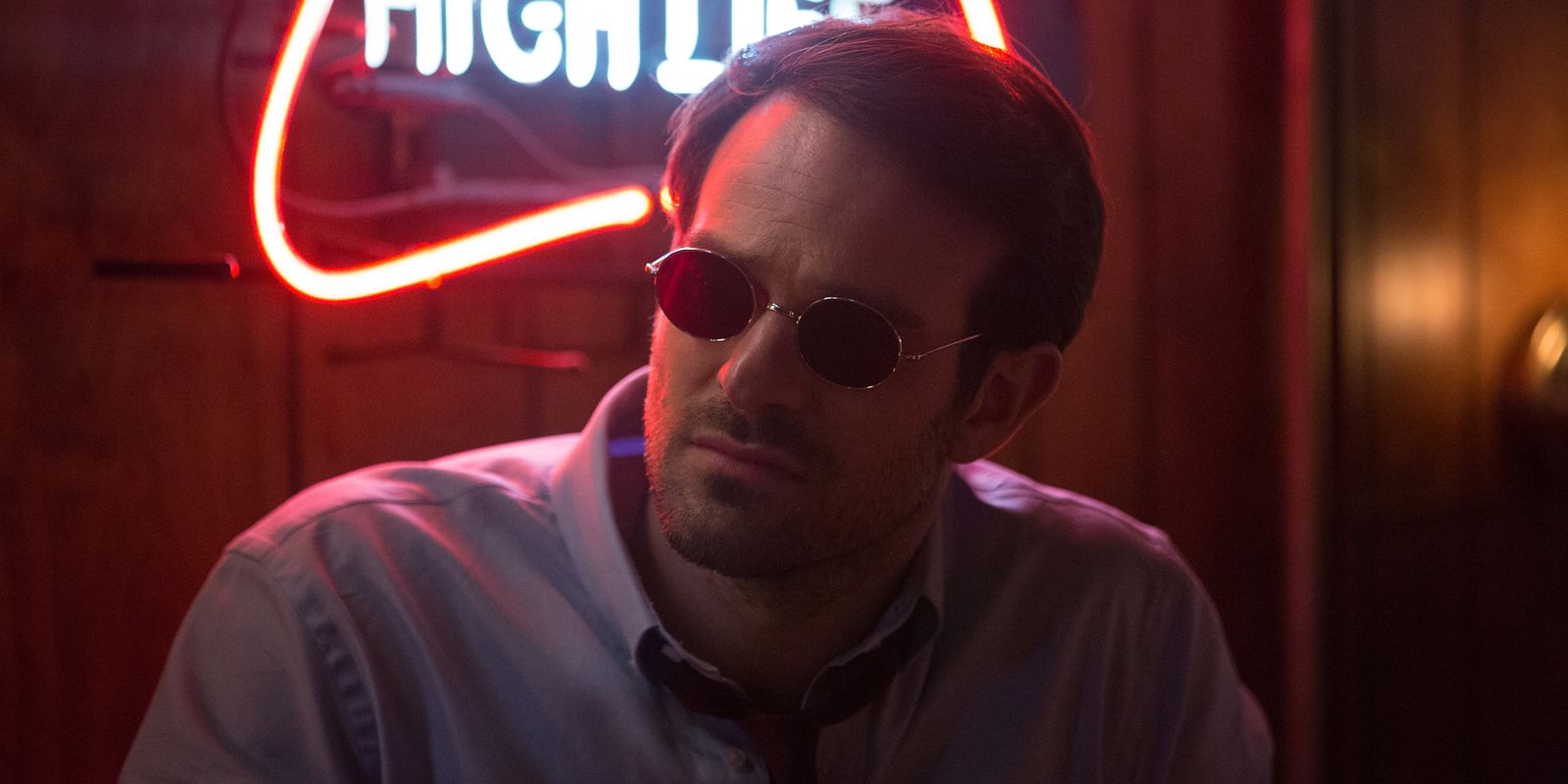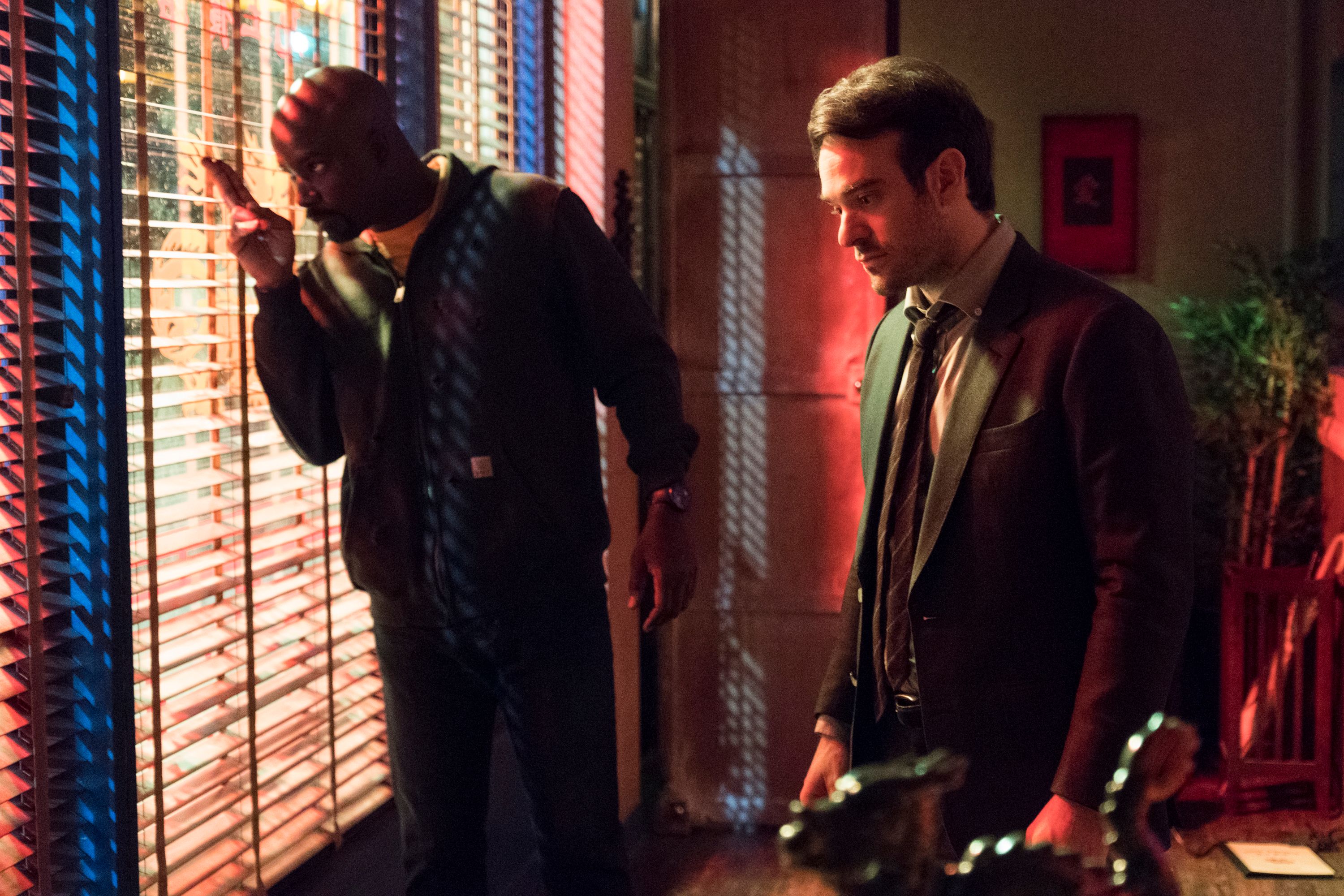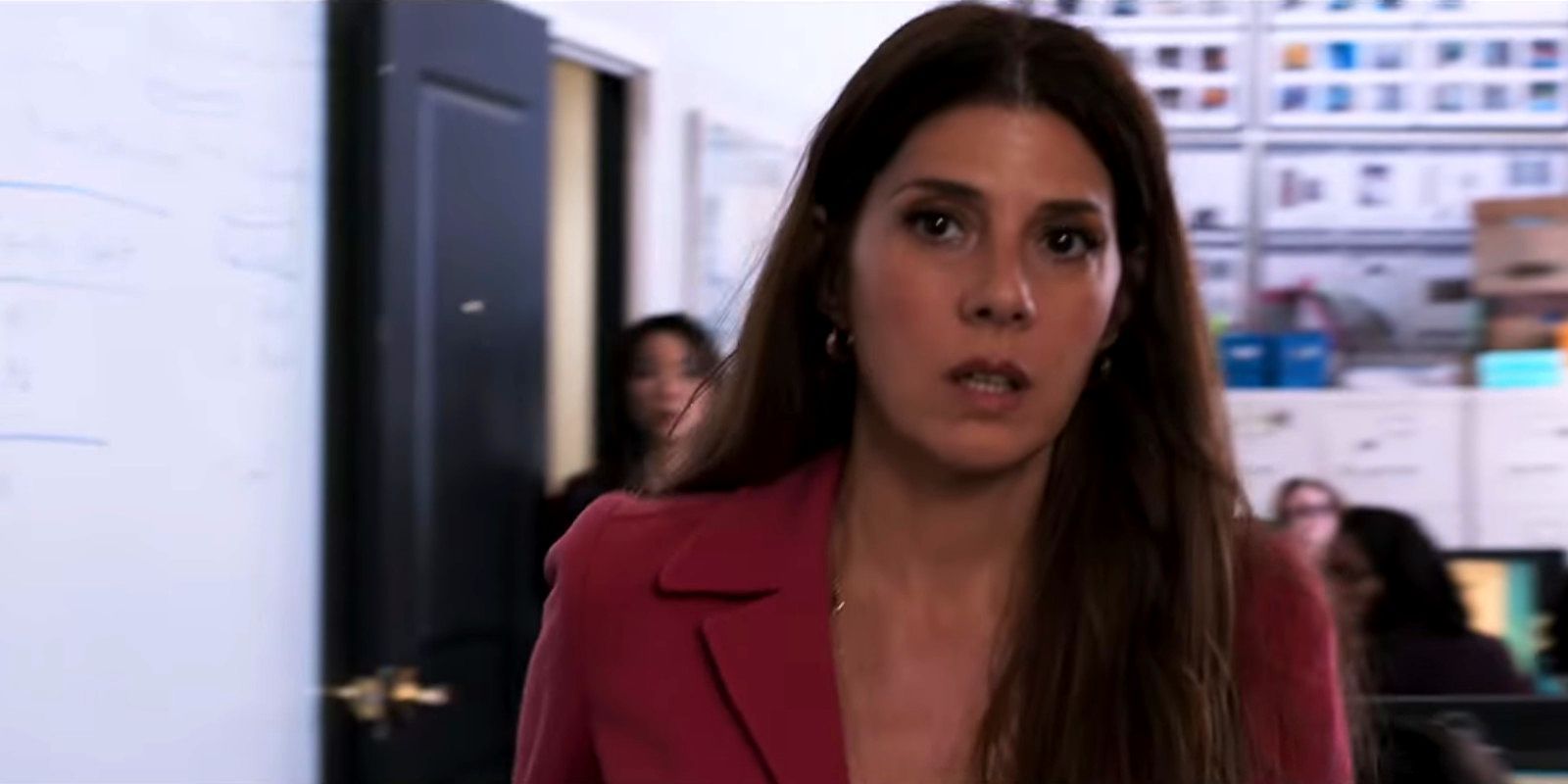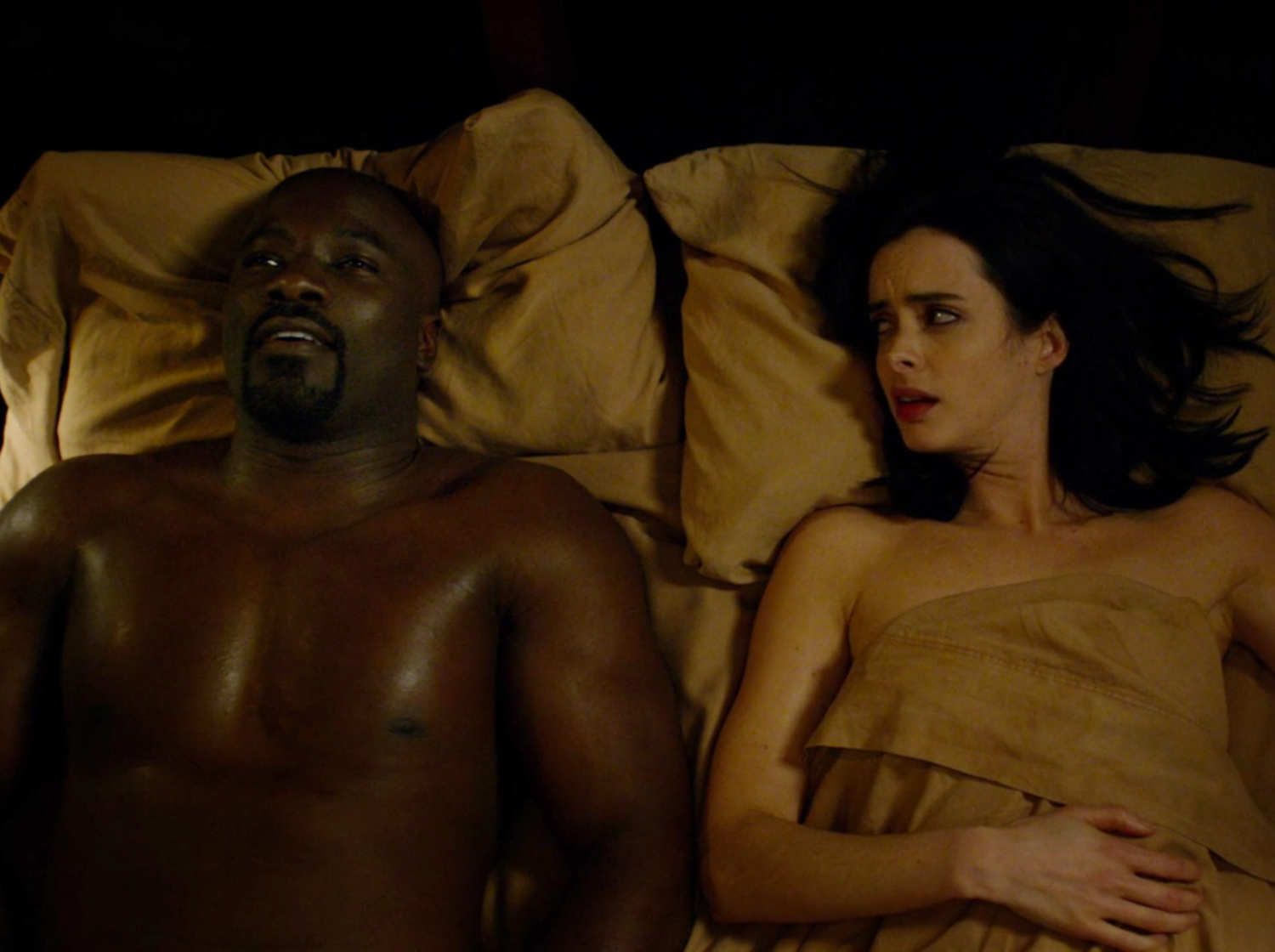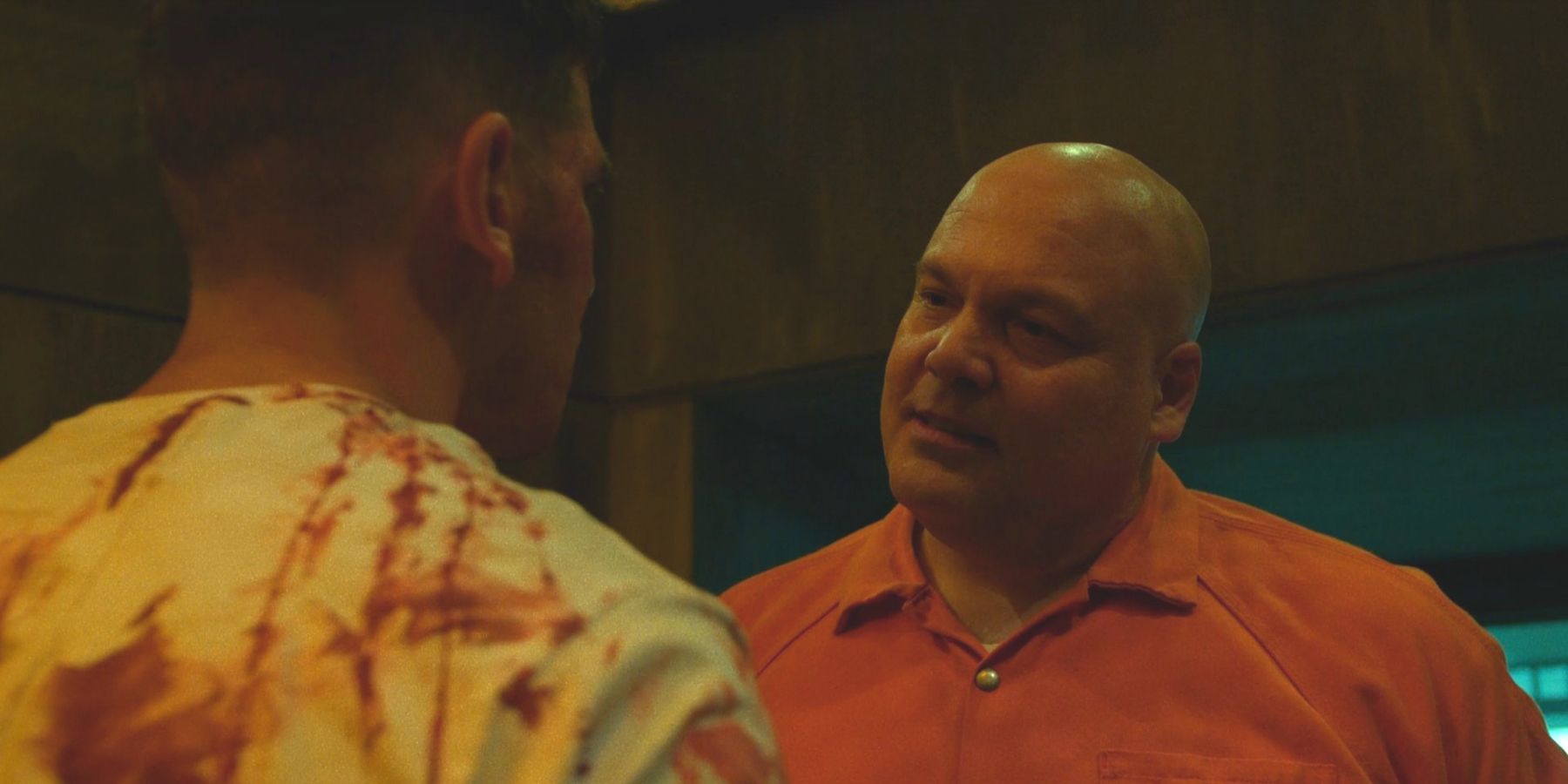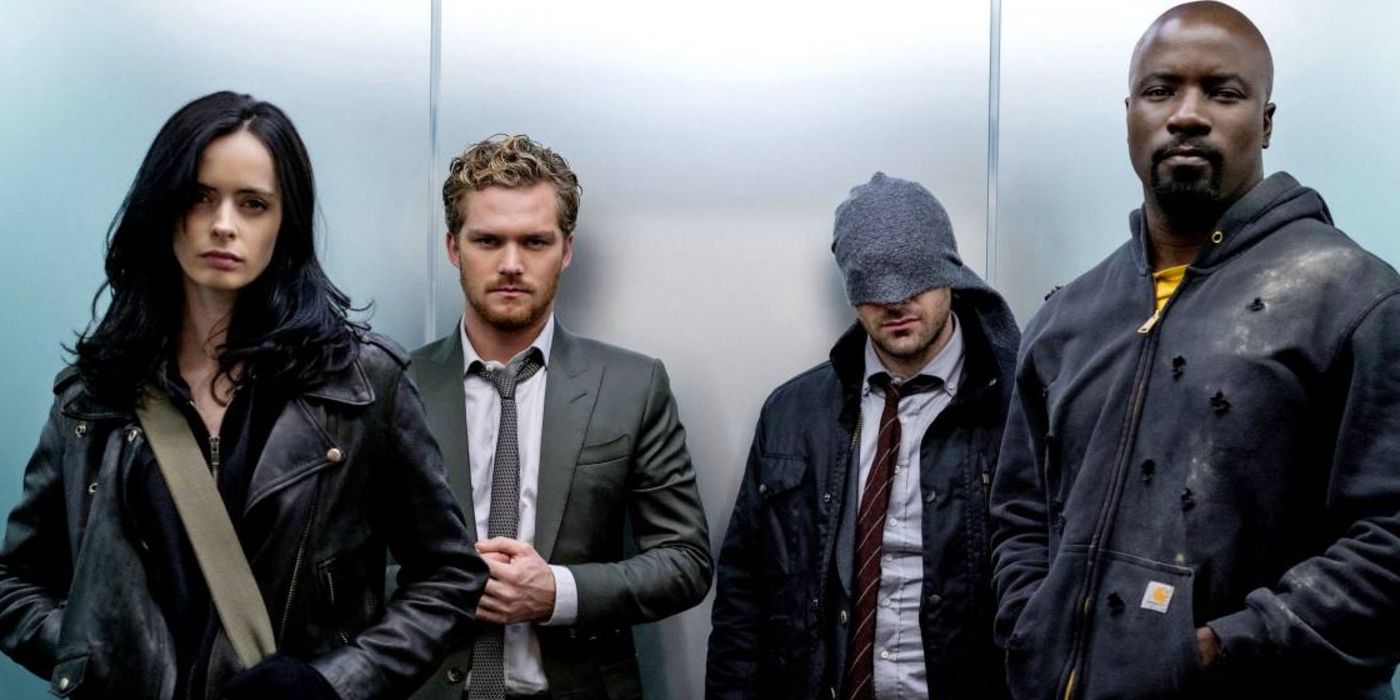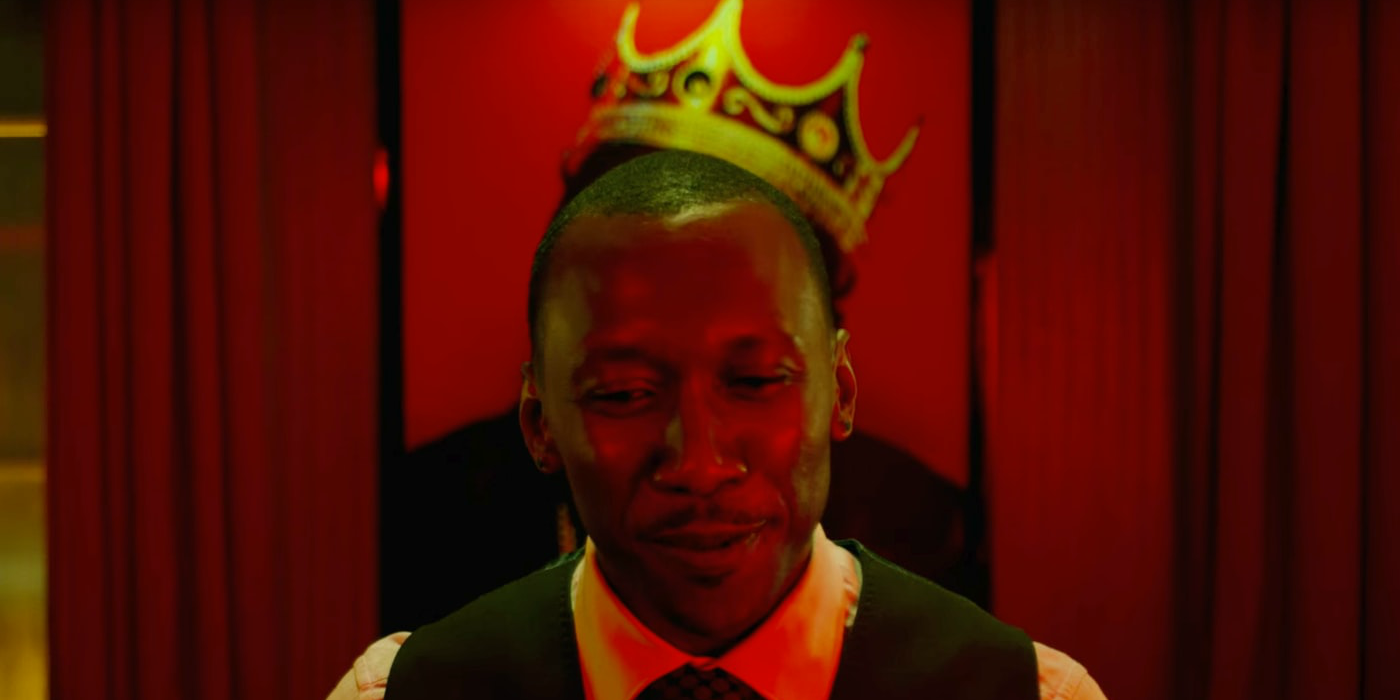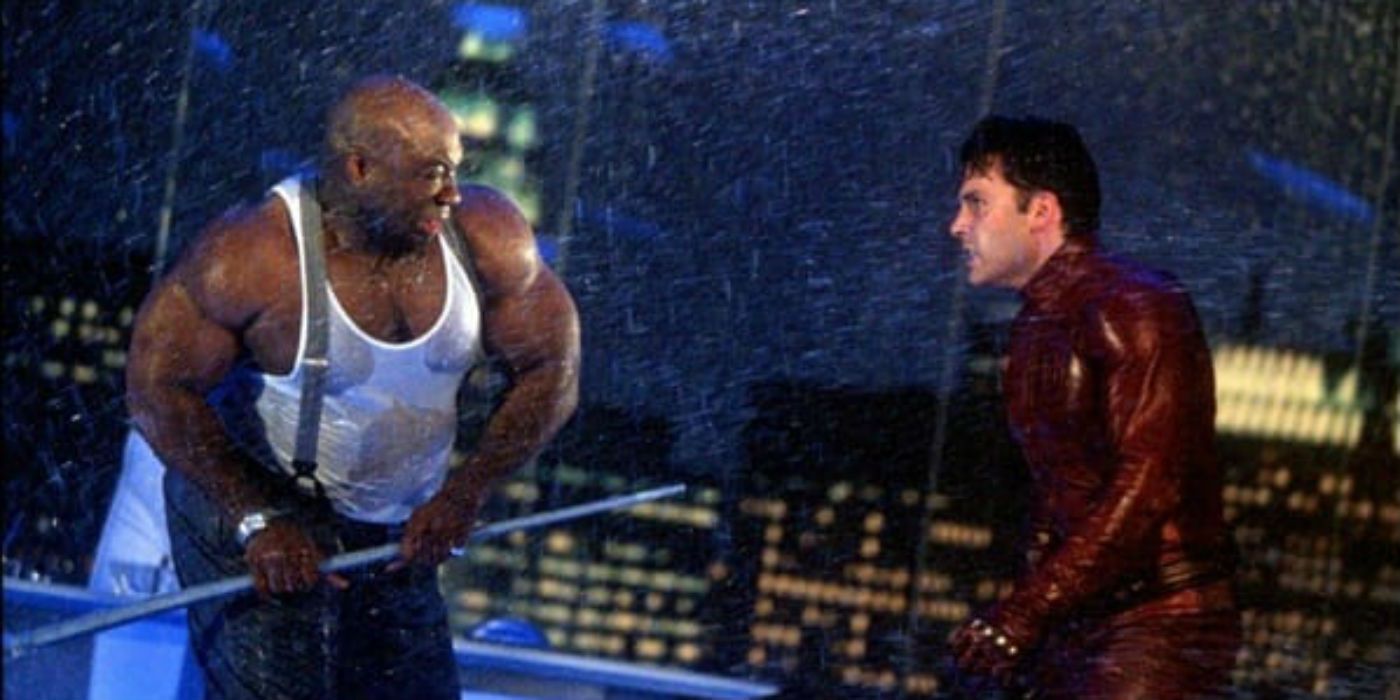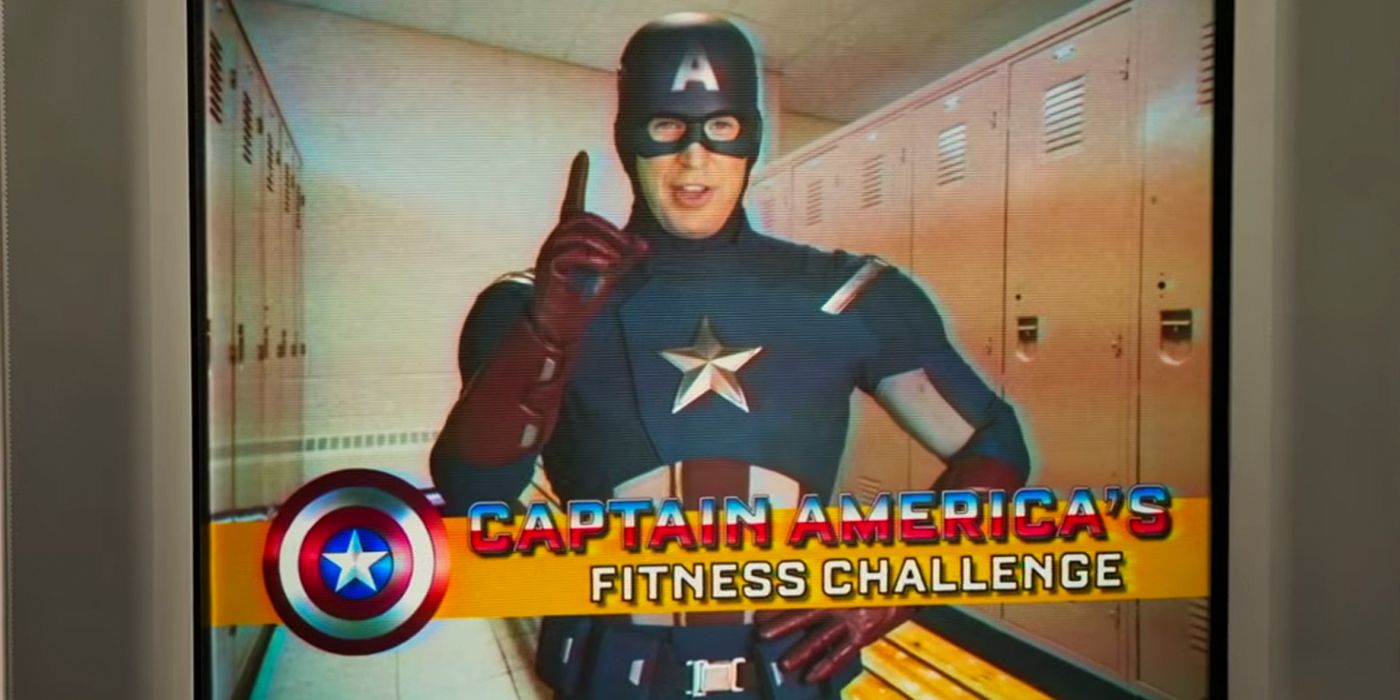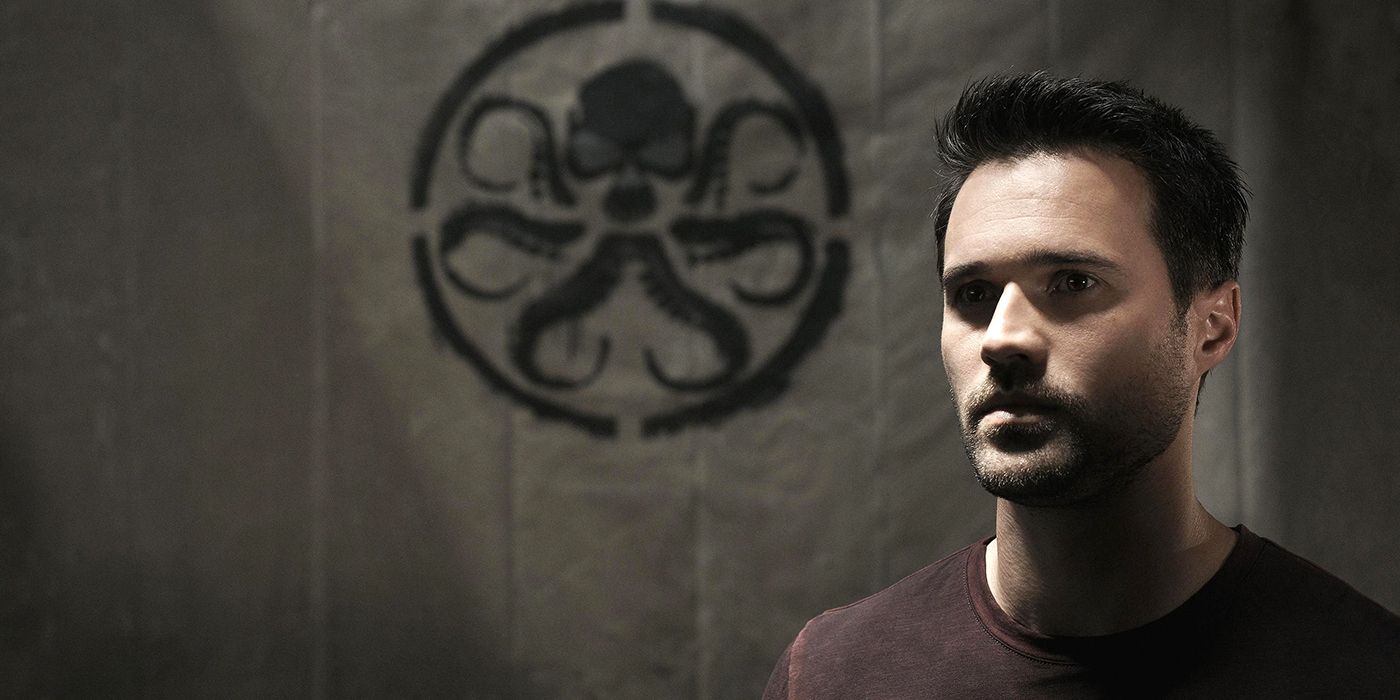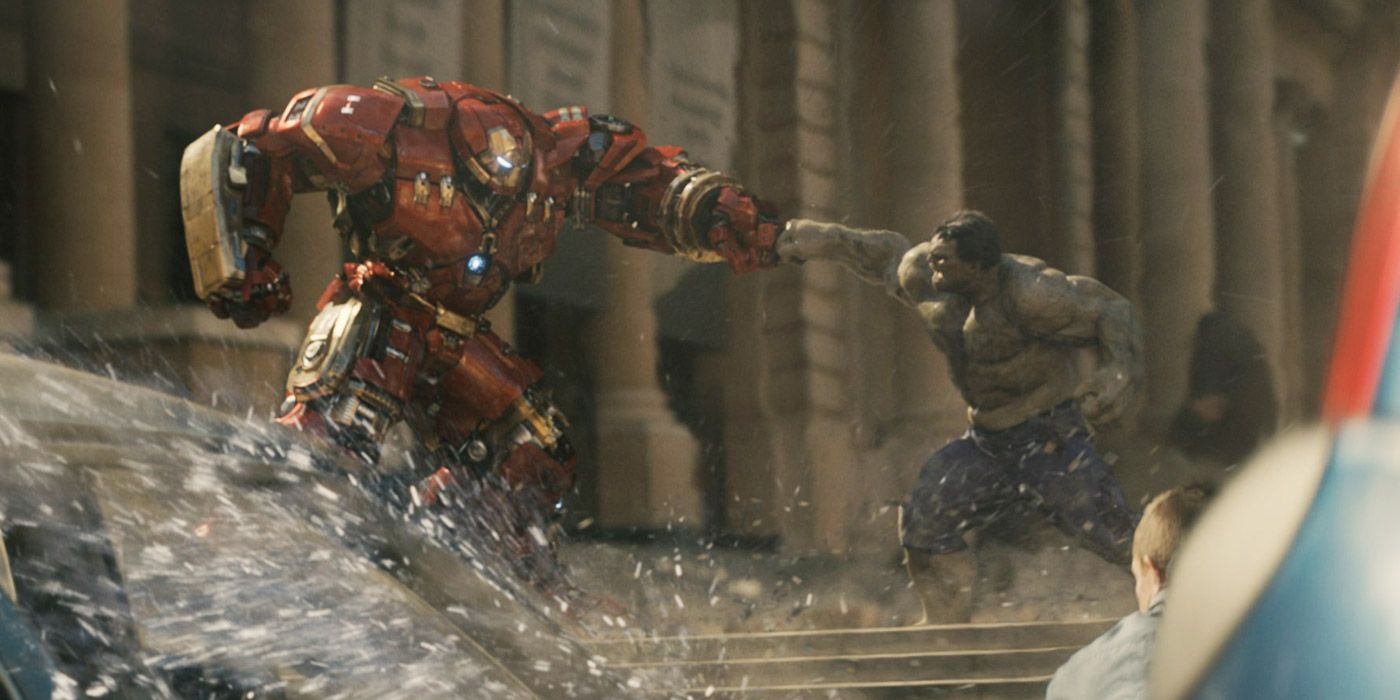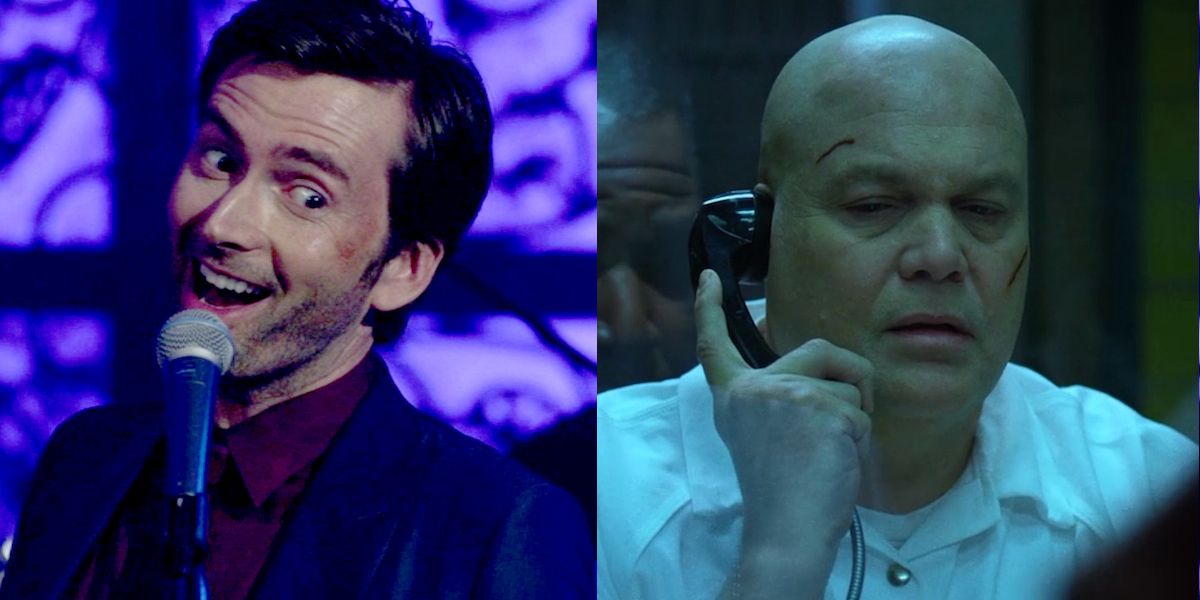Fans of the Marvel Cinematic Universe cannot wait for Avengers: Infinity War to get here. In addition to seeing the heroes of Earth and beyond fight Thanos, the movie represents the biggest opportunity yet to see the various stars of the MCU onscreen together for the very first time. However, not everyone will come out to play: by all accounts, Netflix MCU favorites like Daredevil and Jessica Jones are unlikely to appear on the big screen, and this has left fans understandably sad about their absence.
We'll let you in on a secret, though: keeping the television MCU stars away from the big screen is the best thing that could happen to them. Similarly, fans hoping to see big screen stars like Spider-Man pop up in the television MCU need to realize that their absence actually makes the MCU better.
Trying to cross over these characters from one medium to another would threaten the characters, plots, and tone that fans have come to know and love. Don't believe it? Well, you don't have to get a mystical vision from Doctor Strange or Scarlet Witch to check on this...
Just read our handy guide to 15 Reasons The MCU Movies And TV Shows Need To STOP Crossing Over!
>15. Difficult to sync up plots
One of the most compelling reasons to keep the film and TV sections of the MCU separate is that it would potentially ruin major plots for TV show characters. Why is this? Well, MCU films are major affairs, often taking years to go from concept to finished product. Why, in the time it takes to get a new Avengers movie, there have usually been multiple full seasons of shows on Netflix and ABC.
As an example, many fans were sad to not see Daredevil make an appearance in Captain America: Civil War. That movie came out one year after Daredevil debuted, but it was in production well before that. Getting Daredevil into the movie would have required some last-minute changes to the movie itself, and Daredevil's upcoming appearance in that movie would have tied the hands of Daredevil's writers, as they'd know they couldn't make any major changes that would disrupt that appearance.
Ultimately, both the movies and TV show would suffer.
14. Shooting schedules are too different
Similar to the difficulty of syncing up plots, it is next to impossible to sync up the shooting schedules of the MCU movies and TV shows. In general, TV shows have a much quicker shooting schedule, which is how shows like Agents of S.HI.E.L.D. have been able to quickly react to universe-changing revelations in movies like Captain America: Civil War. However, actual cameos are much harder to pull off.
That is one of the reasons that, after his death in the first Avengers movie, Coulson has never again appeared in an MCU film, despite his resurrection. Getting Coulson to appear in movies that won't come out for years ties him up while also making it difficult for different creative crews to align their schedules.
Going from film to TV, the only easy way for a movie star to appear in the MCU TV shows is if they are not active in the movies, as when Fury's appearance in S.H.I.E.L.D.'s season one finale was because his character was faking his death. Important movie characters would have to be written out of major film arcs to justify minor TV cameos, which hurts the MCU as a whole.
13. Adult TV audience vs family-friendly movies
For better or for worse, the Marvel Cinematic Universe films have staked out their audience: they are family-friendly action films, providing enough adult humor to make mom and dad happy while ensuring that their children will leave the theater wanting to buy action figures. This means that people who aren't really into family-friendly action movies are likely to skip the MCU altogether.
And then there's Netflix. Marvel has decided that Netflix will be the platform where they launch premium content that is aimed specifically at adults. Now, people who might tune out of a generic CGI beat'em up movie are likelier to tune in to shows with intense psychological drama, dark themes, and adult situations.
However, any crossover would feel truly bizarre: it's impossible to imagine Tom Holland's happy-go-lucky Peter Parker popping up in the bleak world of Jessica Jones, and glitzy Tony Stark would seem out of place in Luke Cage's gritty Harlem.
Adults finally have a grown-up corner of the MCU to enjoy, and trying to bring in the family-friendly characters threatens the entire tone of these shows.
12. "Grounded” heroes shouldn't go cosmic
Speaking of Spider-Man, his Homecoming movie called specific attention to something the Netflix MCU has been doing from the beginning: the Avengers do not always notice or care what is going on in the city streets below. Spider-Man, like The Defenders, has pledged himself to protect the little guy, but we fans know that he'll be caught up in cosmic Infinity War drama soon and very soon.
Many fans, of course, would like to see The Defenders pop up in Infinity War or later MCU movies. It's really cool to imagine Luke Cage or Daredevil punching Thanos in the face. However, once they are drawn into the orbit of worldwide (and, if rumors are to be believed, intergalactic) conflict, they will no longer be protecting those who have no other protection.
Harlem needs Luke Cage; Hell's Kitchen needs Daredevil. If these characters become de facto Avengers, then their characters and stories are changed forever, with no going back to the world the fans have fallen in love with. We'll lose the grounded perspective that they bring to the entirety of the MCU, which would be a true loss.
11. Lose the surprise factor
One of the most interesting qualities of the MCU, going back to the first Iron Man, is their love of surprise. Just when Tony Stark was poised to give the “Iron Man is my bodyguard” excuse that he used for years in the comics, he simply admitted who he was to the world. When we thought we knew exactly how S.H.I.E.L.D. worked, Winter Soldier disbanded them. And when we thought Peter Parker was good at keeping secrets, Aunt May suddenly sees him unmasked.
However, the actual surprise factor of moments like these would be lost if there was increased movie and TV crossovers. The simple reason for this is leaks, either from people deliberately leaking secrets or actors accidentally spilling the beans.
Lots of movie and TV crossover means lots of opportunity for these awesome moments to be spoiled by social media well before you get to the theater, ruining the overall experience.
10. The sex factor
Let's be honest: the exact mechanics of superhero sex have been debated by nerds for decades. Fans have wondered if Superman needed things like a Kryptonite condom to keep from killing Lois and, of course, just how freaky Mr. Fantastic and his stretchy body are in the bedroom. Of course, with the MCU films being so family-friendly, we're not in any danger of seeing the pleasures and pratfalls of superhero sex on the big screen anytime soon.
However, the Jessica Jones TV show managed to break new ground and a bed at the same time, showing the rough, sexy fun two nearly indestructible characters can have with one another. Their sex scenes were sweet, funny, and just plain sexy. It also cemented these shows as very adult series that deal with things that the Avengers and related movies never will.
The film MCU characters do not belong in this world, as their romances are usually unrequited (Star-Lord and Gamora), interrupted (Captain America and Agent Carter), or abandoned (Thor and Jane Foster). Keeping the televised MCU separate means those creators can focus on the romantic entanglements that the film MCU usually leaves by the wayside - and maybe focus on buying some reinforced beds, too.
9. The violence factor
A rather undeniable problem that the MCU movies have are its villains. For every good villain like Loki or the Vulture, there are more generic villains like Ronan or Whiplash.
Whether the main villain's performance is good or not, the heroes are usually fighting against faceless armies of robots, aliens, and so on. The reason for this is clear: sanitized violence. We cannot see our villains do anything truly horrific in these family-friendly movies, and we don't want to get too uncomfortable see heroes like The Hulk brutally murdering legions of humans (or human-looking aliens).
Netflix's corner of the MCU, however, has full reign to show us some really dark violence. We've seen Kingpin crush heads with a door and Kilgrave turn daughters into murderers with a word. Keeping the film and TV MCU separate allows us to enjoy this sleek and stylized violence on its own terms.
If the Netflix heroes and villains were brought into an Avengers movie, they'd be reduced to punching CGI robots and giving bloodless monologues instead of bloody beatdowns, which isn't fun for anybody.
8. The ability to mix genres
As we've mentioned before, the film MCU has pretty solidly styled itself as a family-friendly series of adventure movies. While some directors have done some experimental things with the MCU, the truth is that these movies rarely stretch themselves into different genres. Meanwhile, on Netflix, the MCU has successfully experimented with many different genres.
Daredevil has shown us that the superhero world has room for high-powered legal drama, while Jessica Jones brought us a new spin on classic detective noir. Luke Cage has offered commentary on race in America by reclaiming the 1970's blaxploitation aesthetic, while Iron Fist has channeled classic kung-fu movies.
What happens when you move those characters into an Avengers movie? Outside of their genres, they become pretty generic: Jessica Jones and Luke Cage are hard-hitters like Thor or Hulk, and Iron Fist and Daredevil are enhanced acrobats like Spider-Man. In short, they'd be redundant in the MCU movies, but in their own shows, they can continue reinventing their respective genres.
7. Slow burn vs quick explosions
One thing that comic fans noticed right away is that short television seasons provide the best way of adapting comic book arcs. Rather than having to squeeze everything into two hours, an average season of Daredevil or Jessica Jones has over eleven hours to develop its heroes and villains and tell a compelling tale from beginning to end. Even when an adaptation is handled well onscreen (as with Captain America: Civil War), fans lose much of the nuance they could with a longer running time.
That serialized storytelling nuance will also be lost if we start transporting televised MCU characters onto the big screen. All of a sudden, their carefully-crafted individual storylines are consumed by larger events like Thanos and the Infinity Gauntlet. Their time in the movies will be too brief to really develop an arc (more on this later), and participating in these wider conflicts would start flattening out the depth of their televised seasons.
Eventually, shows like Daredevil and Luke Cage would no longer have compelling, contained stories— they would just be responsible for setting up events happening in MCU movies instead of working toward something awesome like The Defenders, all for the sake of some cheap cameos.
6. Singular vision
One shocking behind-the-scenes MCU development was when Edgar Wright left Ant-Man. While Marvel tried to play things close to the vest, all indications were that Wright had refused to integrate script changes being forced on him, which made Ant-Man feel more like a standard Marvel movie than the surreal and stylized movies produced by the director of Scott Pilgrim and Baby Driver.
Meanwhile, the televised MCU benefits from singular visions of its showrunners. Audiences applauded how Jessica Jones treated topics like rape, trauma, and misogyny, and this was due in large part to showrunner Melissa Rosenberg's vision and perspective. Luke Cage has dealt with race and racial struggle in a smart way due to showrunner Cheo Hodari Coker, who integrated racial politics and the specter of police brutality into his show in compelling ways.
The singular visions of these showrunners has ensured we get characters and stories distinct from the MCU films, and bringing these characters over to the films would make them lose this creative spark.
5. Casting confusion
Most of the time, comics fans make the mistake of assuming that comic movies are made specifically for them. However, to achieve worldwide hit after hit, Marvel has to make things interesting and accessible to all audiences, not just superfans. That means trying to avoid confusion whenever possible, and let's face it: bringing the televised MCU characters onto the big screen would confuse quite a few people.
There are still moviegoers confused about the fact that we've had three bigscreen actors portraying The Hulk in the span of nine years. You can pretty much imagine your parents' confusion now if they saw Daredevil on the big screen (“what happened to Ben Affleck?”) or Elektra (“what happened to Jennifer Garner?”) or Punisher (“what happened to Thomas Jane?”).
Along with specific character confusion, this would also add even more heroes to an already bloated big screen line-up, ensuring grandma is more confused than ever when shopping for Christmas toys.
4. We want characters, not cameos
MCU fans' desire for crossovers is understandable, of course. They're in love with their favorite small-screen characters, and they want to see those characters expanded to the big screen. Alternately, they want to see how a major MCU character like Iron Man or Captain America might shake things up on the smallscreen.
In reality, the kind of cameo that we'd get would leave fans very unsatisfied. If somebody really loves a character like Daredevil, for instance, then having him appear in Infinity War for thirty seconds and only have a line or two will be unfulfilling.
Cameos would be similarly brief on the smallscreen: Netflix simply doesn't have the budget for a prolonged Robert Downey, Jr., cameo. If Tony did show up, it would just be a brief, disruptive cameo that wasn't nearly worth the hype. The truth is, if you love these characters, there is no better way to appreciate them than in their own shows and movies instead of bite-sized cameos.
3. We'd lose plot details
One of the coolest parts of the televised MCU is that they have the freedom to flesh out ideas only briefly sketched in the movies. For instance, Hydra's S.H.I.E.L.D. infiltration is a brief plot point quickly resolved in Captain America: Winter Soldier, but it turned into an awesome, multi-season story on the Agents of S.H.I.E.L.D. television show. However, frequent crossovers would actually jeopardize the freedom shows have to do this.
The aforementioned difficulty in syncing up schedules means that TV shows trying to accommodate major MCU film star cameos would have to spend a lot of time writing plots around those stars. By making the TV shows a de facto extension of the movie plots, the showrunners would lose the creative freedom granted by shining a spotlight onto lesser-known parts of the Marvel Cinematic Universe.
In short, we'd no longer see the cool world in the margins of the MCU, but just focus on getting to the next page of the "main" story that we are already getting plenty of in the movies.
2. The budget problem
One blunt truth about trying to crossover your favorite characters is that they would all look really out of place due to operating within an unfamiliar budget. People going to an Avengers movie that is operating with a fat Disney budget are expecting major CGI spectacle and eye-popping action scenes. Meanwhile, people tuning into the MCU on Netflix or ABC are expecting a quieter and more intimate character study.
If we're being honest, these two worlds don't belong anywhere in the same vicinity. Bringing Luke Cage or Jessica Jones into an Avengers movie would not be visually exciting, for instance: they are just plainly-clothed characters who can punch really hard. And bringing a visually dynamic character like Iron Man or Thor to a show like Daredevil would inevitably make that appearance look cheap, like a Party City knockoff that has to legally call itself something like “flying metal man.”
Keeping these worlds separate means that each character can be utilized best for their particular budgets.
1. We'd lose great actors
One of the reasons Netflix's MCU made a splash is the talent they have attracted, particularly for villains. Vincent D'onofrio infuses Kingpin with a malevolent menace unlike any we have seen, while David Tennant breathes Kilgrave to life as a nightmarish vision of a completely amoral telepath. Fans were surprised to see this level of talent, but these shows are win/win arrangements for high-profile actors: they come in, finish one season (or the occasional cameo) in a short shooting schedule, and then they are done.
However, if the Netflix MCU regularly crossed over into MCU films, we would probably stop getting such talent. This because the creation and subsequent marketing juggernaut of a Marvel movie is a huge commitment that stretches on for years.
Suddenly, these powerhouse actors who are happy to spend about a hundred days to film a season of something like Daredevil would have to decide if they wanted to spend the next several years firmly attached to various Marvel projects instead of moving on to other roles.
Therefore, if we hope to keep getting casting coups for the Netflix MCU (including Sigourney Weaver for The Defenders), then we need to let the crossover idea go.
---
Know of any other reasons to keep the MCU separated? Be sure to let us know in the comments!

